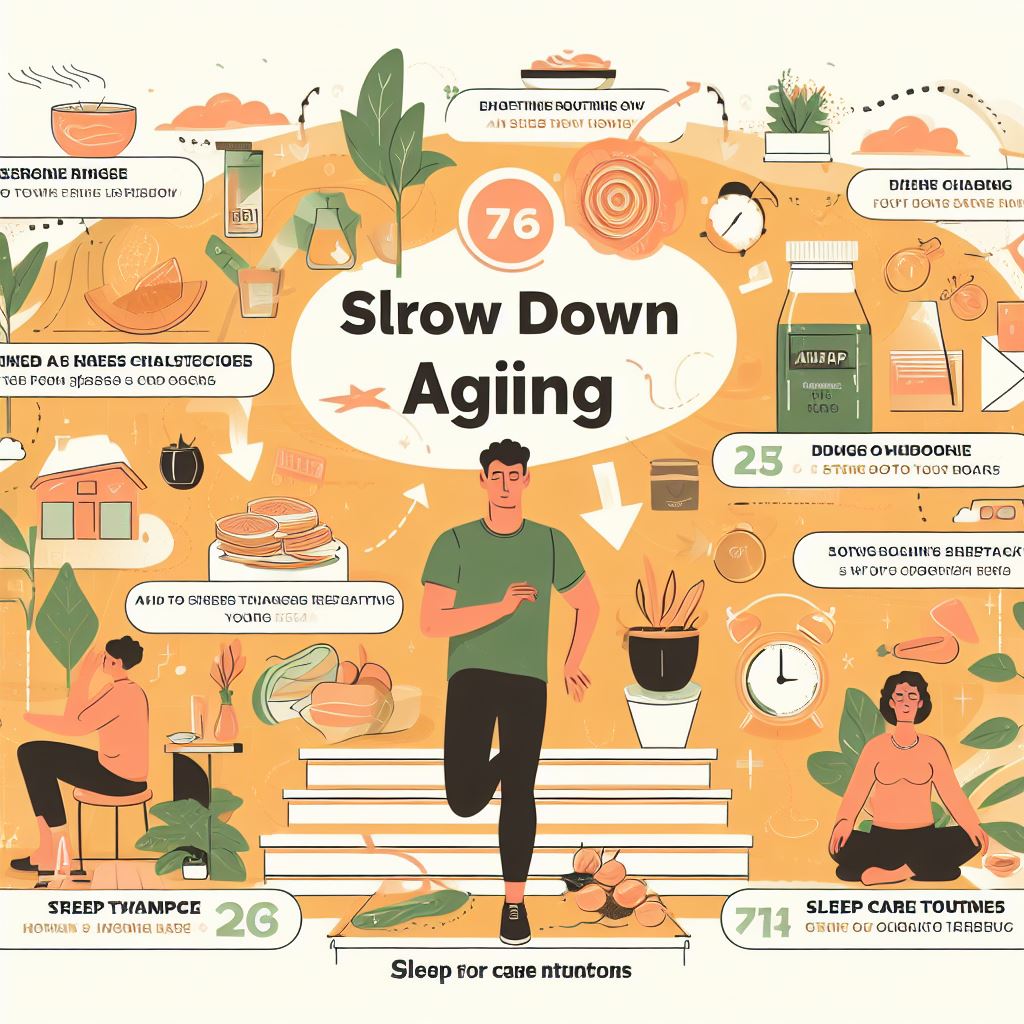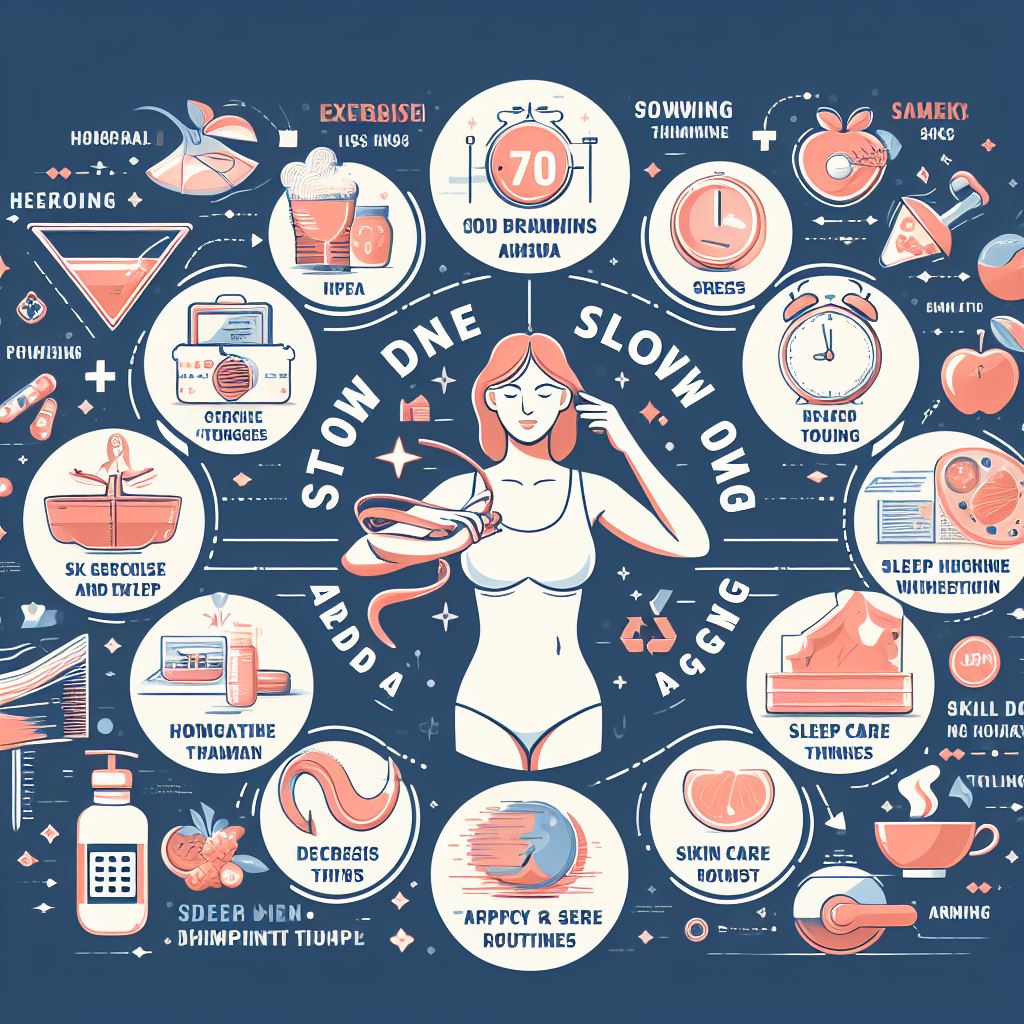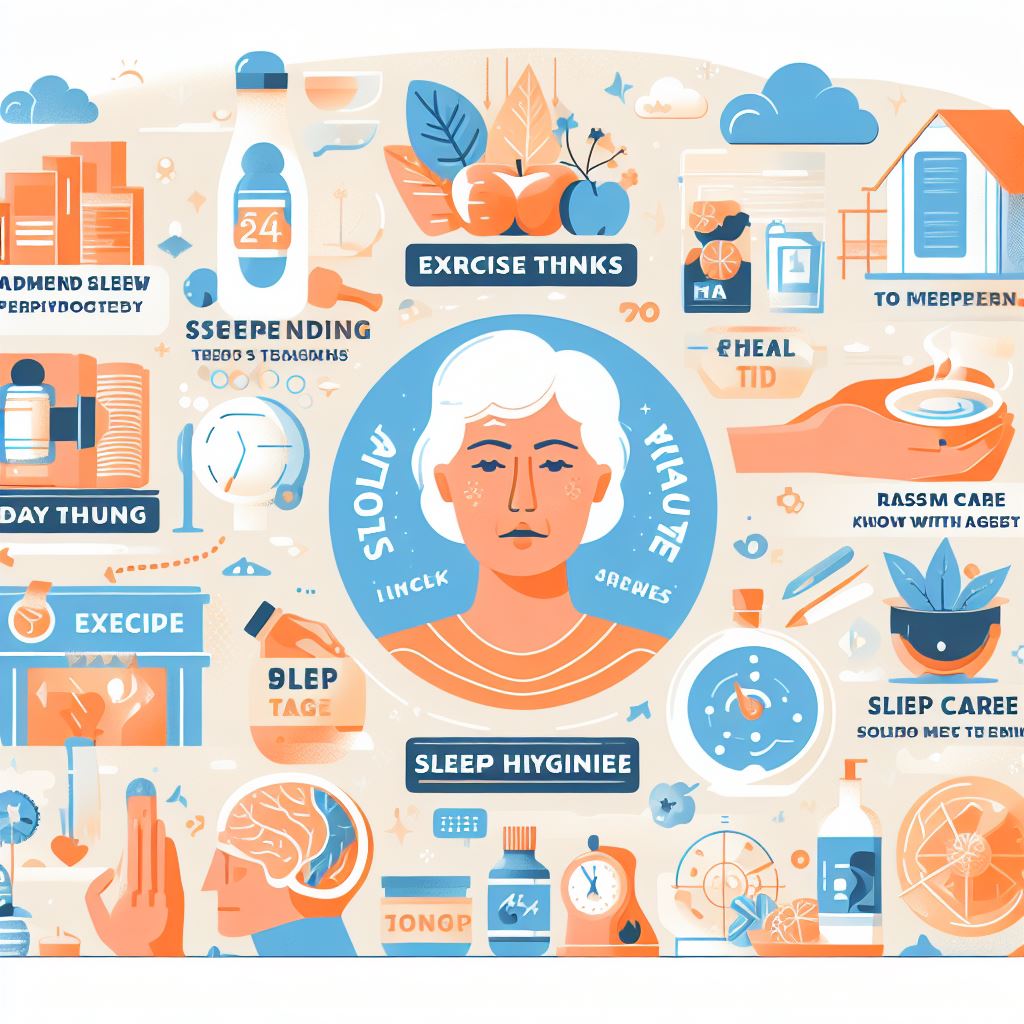
While it’s not possible to reverse your biological age through diet in the sense of turning back the clock, adopting a healthy diet can help promote a more youthful and vibrant appearance, support overall well-being, and potentially slow down some of the visible signs of aging.
New discovery that we can slow down the speed of aging
There is a lot of research on aging. Many researchers have tried to find out whether the speed of the biological aging process can be slowed down, according to Loge Nilsen.
“Our study shows that we can actually flatten the curve for the speed of aging,” the researcher says.
There are a number of things you can do to slow down aging, including:
- Eat a healthy diet. Eating a healthy diet is one of the best things you can do for your overall health and well-being. A healthy diet includes plenty of fruits, vegetables, and whole grains. It is also important to limit your intake of processed foods, sugary drinks, and unhealthy fats.
- Exercise regularly. Exercise is another important factor in maintaining good health and slowing down aging. Aim for at least 30 minutes of moderate-intensity exercise most days of the week.
- Get enough sleep. Sleep is essential for repairing and rejuvenating your body. Most adults need around 7-8 hours of sleep per night.
- Manage stress. Stress can accelerate the aging process. Find healthy ways to manage stress, such as exercise, yoga, or meditation.
- Avoid smoking and excessive alcohol consumption. Smoking and excessive alcohol consumption can damage your cells and tissues and contribute to aging.
In addition to these lifestyle changes, there are a number of other things you can do to slow down aging, such as:
- Protect your skin from the sun. Sun exposure is one of the leading causes of premature skin aging. Be sure to wear sunscreen with an SPF of 30 or higher whenever you are outdoors.
- Stay hydrated. Dehydration can make your skin look older and contribute to other age-related problems. Drink plenty of fluids throughout the day, especially water.
- Use anti-aging skincare products. There are a number of anti-aging skincare products available that can help to reduce the signs of aging. Look for products that contain ingredients such as retinol, hyaluronic acid, and vitamin C.
- Consider taking supplements. There are a number of supplements that have been shown to have anti-aging effects. Some of the most popular anti-aging supplements include resveratrol, NAD+, and quercetin.

Here are some dietary tips that may contribute to a healthier and more youthful lifestyle:
- Eat a Balanced Diet: Consume a well-rounded diet rich in fruits, vegetables, whole grains, lean proteins, and healthy fats. A variety of nutrients is essential for overall health.
- Stay Hydrated: Adequate hydration is crucial for healthy skin and overall well-being. Drink plenty of water throughout the day to keep your skin and body hydrated.
- Antioxidant-Rich Foods: Include foods high in antioxidants, such as berries, citrus fruits, leafy greens, and nuts. Antioxidants help combat free radicals that can accelerate the aging process.
- Omega-3 Fatty Acids: Omega-3 fatty acids, found in fatty fish (like salmon and trout), flaxseeds, and walnuts, may help reduce inflammation and support heart and brain health.
- Protein: Protein is important for maintaining muscle mass, which can decline with age. Include sources of lean protein like poultry, fish, tofu, and beans in your diet.
- Limit Processed Foods: Minimize your intake of processed foods, sugary snacks, and beverages high in added sugars. These can contribute to premature aging and health issues.
- Reduce Sodium Intake: High sodium intake can lead to water retention and bloating. Reducing your salt intake can help you maintain a youthful appearance.
- Healthy Fats: Choose sources of healthy fats, such as avocados, olive oil, and nuts, which can support skin health and overall vitality.
- Collagen-Boosting Foods: Collagen is important for skin elasticity. Foods like bone broth, fish, and soy products may help support collagen production.
- Colorful Vegetables: Consume a variety of colorful vegetables, as they contain essential vitamins and minerals that support skin health and reduce the signs of aging.
- Manage Portion Sizes: Be mindful of portion sizes to avoid overeating, which can contribute to weight gain and related health issues.
- Intermittent Fasting: Some studies suggest that intermittent fasting may have potential health benefits, including supporting weight management and cellular repair. Consult a healthcare professional before starting any fasting regimen.
- Stay Active: Combine a healthy diet with regular exercise, as physical activity is a key component of healthy aging.
- Limit Alcohol and Avoid Smoking: Excessive alcohol consumption and smoking can accelerate the aging process and negatively impact your health. Reducing or quitting these habits can have a significant impact on your overall well-being.
5 Foods To Stop Your Brain From Ageing

- Blueberries Blueberries are like little powerhouses of antioxidants that fight off free radicals, which can damage brain cells and speed up the aging process. Blueberries are also rich in vitamin C, which boosts cognitive function and memory.
- Fatty fish Fatty fish like salmon and mackerel are loaded with omega-3 fatty acids. These healthy fats are essential for brain health, as they reduce inflammation and support the growth of new brain cells. So, include fish in your diet regularly for a youthful brain.
- Green leafy vegetables Spinach, kale, and other green leafy vegetables are packed with brain-boosting nutrients like vitamin K, folate, and antioxidants. They help improve memory and slow down cognitive decline, supports the study Nutrients and bioactives in green leafy vegetables and cognitive decline.
- Turmeric Turmeric is a staple in Indian cuisine, and it’s a true superstar for anti-aging. Curcumin, the active compound in turmeric, has powerful anti-inflammatory and antioxidant properties.
- Nuts and seeds Nuts and seeds like almonds, walnuts, and flaxseeds are rich in omega-3 fatty acids, antioxidants, and vitamin E. They enhance brain function, improve memory, and help maintain cognitive abilities as you age.
- Spinach: Spinach is another leafy green vegetable that is packed with nutrients. It is a good source of vitamins A, C, and K, as well as fiber and antioxidants. Spinach has been shown to improve cognitive function and protect the brain from age-related decline.
- Broccoli: Broccoli is a cruciferous vegetable that is packed with nutrients, including vitamins A, C, and K, as well as fiber and antioxidants. Broccoli has been shown to have anti-cancer and anti-inflammatory properties.
- Sweet potatoes: Sweet potatoes are a good source of beta-carotene, which is converted to vitamin A in the body. Vitamin A is essential for cell repair and growth. Sweet potatoes are also a good source of vitamin C and antioxidants.
- Avocados: Avocados are a good source of healthy fats, which can help to improve skin hydration and elasticity. They also contain vitamin E, which is another antioxidant that can help to protect cells from damage.
- Blueberries: Blueberries are rich in antioxidants, which can help to protect cells from damage. They are also a good source of vitamin C, which is essential for collagen production. Collagen is a protein that helps to keep skin firm and elastic.